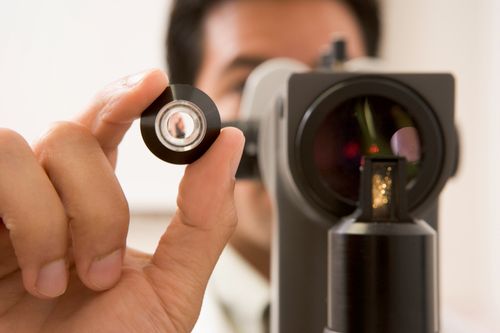Glaucoma is a condition in which the optic nerve is damaged. This is the nerve that carries signals from the retina to the brain. The damage happens for a number of different reasons. It may be caused by a chemical injury to the eye, a blunt injury, or a problem with the blood vessels. In addition, a family history of glaucoma is a major risk factor.
The first signs of glaucoma are typically loss of peripheral vision. These vision changes occur gradually. If you are experiencing symptoms, you should have your eyes checked as soon as possible. Your doctor may also recommend eye drops to reduce the pressure inside your eye.
You should always have a complete eye exam every 1 to 2 years. If you have certain risk factors, such as diabetes, high blood pressure, or a family history of glaucoma, your doctor may recommend more frequent screenings.
You should keep your eyes protected when working in the yard or playing sports. Also, avoid rubbing your eyes and scratching them. Instead, use non-allergenic makeup and wear sunglasses outside. During outdoor activities, you should also use protective goggles.
Among the more common symptoms of glaucoma are blind spots in your field of vision, pain, and nausea. Other signs include haloes around lights. Symptoms vary depending on the type of glaucoma.

Open-angle glaucoma is the most common form of glaucoma. This occurs when the fluid in the eye passes too slowly through the drainage canals in the eye. Sometimes, the drainage canals become blocked, causing a buildup of aqueous humor. However, the early signs of this form of glaucoma are quite subtle. They can include rainbow-colored circles or halos around bright lights.
Closed-angle glaucoma is a more severe form of glaucoma. This is when the angle between the iris and the cornea becomes too narrow, causing an increase in the pressure in the eye. Although closed-angle glaucoma is more serious than open-angle glaucoma, it can still be treated.
Some people who have glaucoma develop sudden headaches and eye pain. These can be severe and can lead to permanent vision loss. Depending on your glaucoma, your doctor may prescribe eye drops to help relieve the discomfort.
A diagnosis of glaucoma is usually made with a complete eye exam. During the exam, your doctor will measure your eye pressure, check your visual field, and take measurements of the nerves in your eye. He or she will also perform a tonometry, which measures the pressure in your eye.
Your doctor will also discuss your risk factors with you. If you have a family history of glaucoma, it is important to have a complete eye exam as early as possible. As with other health conditions, the earlier you know you have glaucoma, the sooner you can begin treatment.
People who have glaucoma often need to use eye drops for the rest of their lives. In addition to decreasing eye pressure, eye drops can help protect your vision. To learn more about glaucoma and other eye diseases, visit the American Academy of Ophthalmology. It offers updates on the latest research and provides clinical evidence for patients.








